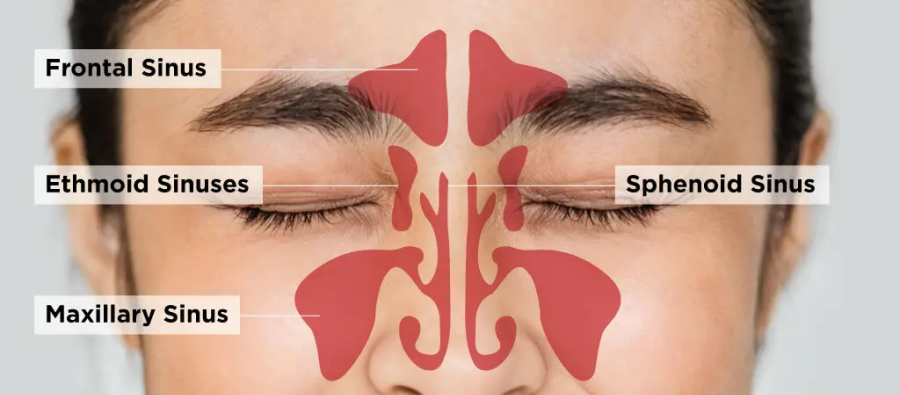

Sinusitis, also known as a sinus infection, is an inflammatory condition affecting the sinuses, causing the tissue lining to swell. This sinusitis disease often results from viral infections, bacterial infections, allergies, or colds. The sinuses are air-filled spaces located behind the forehead, cheekbones, and between the eyes. However, if too much mucus due to infection or allergens, it can result in painful sinus symptoms and swelling.
Acute Sinusitis: This type occurs temporarily, usually lasting around 2–4 weeks. Commonly triggered by seasonal allergies or a common cold, acute sinusitis symptoms are similar to allergic rhinitis symptoms, with a stuffy or runny nose and sneezing.
Subacute Sinusitis: Symptoms of subacute sinusitis last longer, typically 4–12 weeks. Causes include bacterial infections or prolonged exposure to sinus allergens.

Chronic Sinusitis: This condition lasts over 12 weeks and may result from bacteria, allergies, or nasal issues. Chronic sinusitis can be challenging to treat and may require an allergist specialist. Some common causes include:
Sinusitis can affect anyone, but people with nasal allergies, asthma, or structural issues in the nose are at a higher risk. Risk factors include:
In Ayurveda, sinusitis is believed to stem from an imbalance in Kapha and Vata doshas in the sinuses, often due to lifestyle factors or dietary choices. Ayurvedic treatment aims to restore this balance through a combination of diet, lifestyle modifications, and detoxifying therapies. Key treatments include:
Ayurveda offers a natural, holistic approach to sinusitis treatment by focusing on both the root causes and symptomatic relief. With therapies like Nasya, combined with lifestyle and dietary changes, patients often find relief without the need for surgery.
